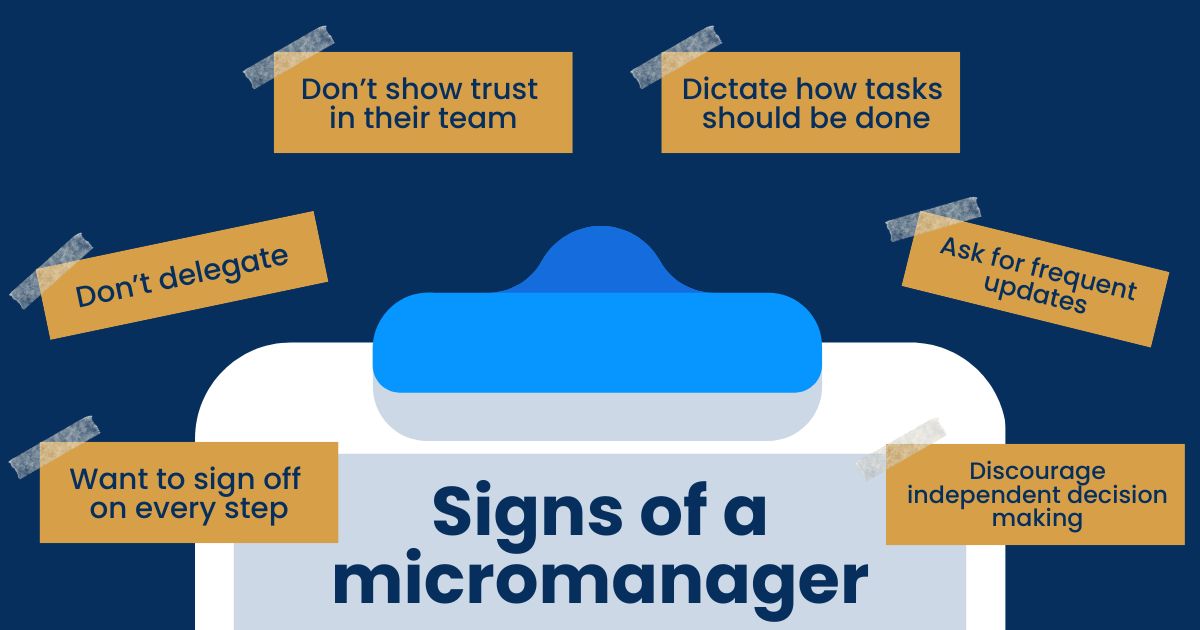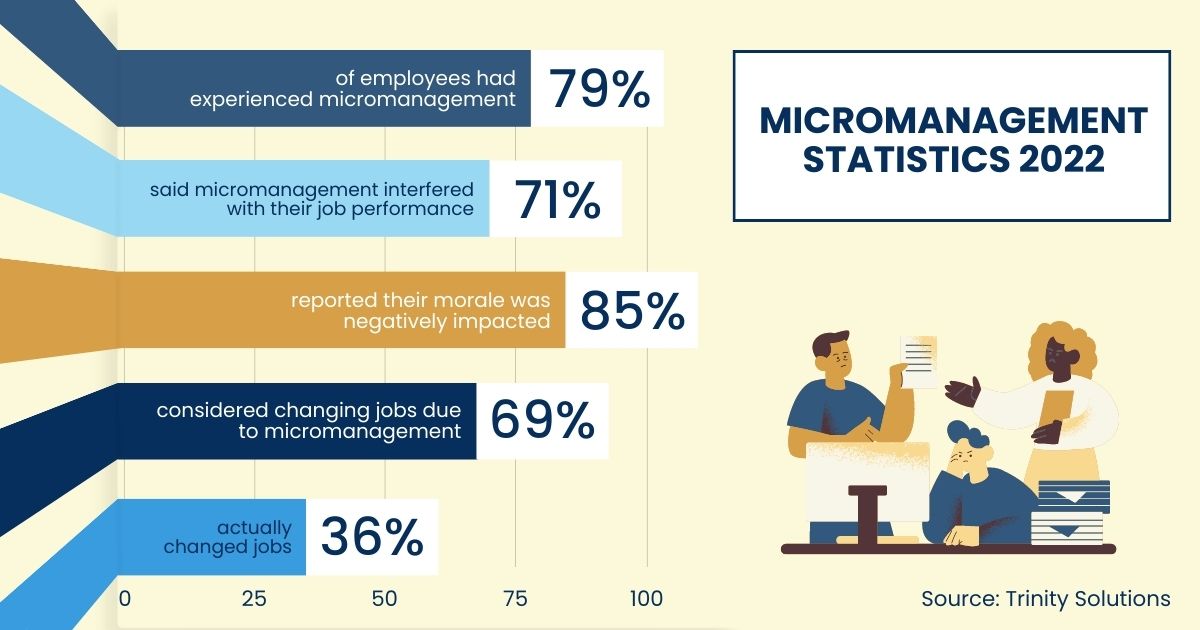As remote work becomes the new normal for many employees, some bosses are falling into the trap of micromanaging employees. Micromanagement is a practice that ultimately drives down engagement, motivation, productivity, and trust. Sure, most micromanaging bosses have the best intentions for their team but have developed poor habits resulting in micromanaging tactics. Likewise, employees are not set up for success because they’re disempowered to make decisions on their own. Therefore, an employee’s leadership skills are limited because they’ll always rely on their manager.
But why does such practice exist? And how can a simple employee deal with a toxic boss without losing the job? In this article, all your questions will be answered so keep on reading.
Table of Contents
Signs Your Boss is a Micromanager
Here are four signs your boss is a micromanager and how you can challenge them.

1. They’re obsessed with knowing everything
Rather than providing clear expectations and trusting their employees, a toxic micromanaging boss requires constant updates even on small tasks, wants access to everything, and checks in multiple times asking for the same information that was already provided.
2. You’re constantly making reports
Even a company’s CEO has to report to a board of directors, but working for a micromanager can make it seem like reporting is the job. As they can’t trust employees, a micromanaging boss is constantly asking for updates.
3. They want to sign off on every step
While it’s true that the product of your work has to go through some approval process, you should be able to make decisions about how that product gets made. You were hired because you were the most qualified person for your role and you should be able to bring your expertise to your work. If even the smallest tasks require sign-off from your supervisor, it could be a red flag.
4. They do not delegate
Instead of delegating, micromanagers will take on or have a hand in all functions. These bosses seem to believe that the workplace will fall apart if they do not oversee every step. Even when the manager does assign duties, employees usually have to obtain approval before moving to the next stage of the process.
How to deal with a micromanaging boss?
There’s no denying that dealing with a micromanager is easier said than done but we got you. Here are some strategies and ideas to help you work better with your manager.
Provide updates proactively
Try proactively sending your manager regular updates, before he or she has a chance to ask them. As you start the day, pull together an email outlining what you accomplished the day before, what you plan on accomplishing that day, and if you have any questions or need any input.
Anticipate what your boss wants – and act
A great start to halting micromanagement in its tracks is to anticipate the tasks that your manager expects and get them done ahead of time. With this, they’ll realize that you have your responsibilities on track – and that they don’t need to watch your every move.
Talk to colleagues about how they’ve handled it
Veteran coworkers or teammates who’ve worked with or under your manager longer might know what words, ideas, and proposals that resonate the most with your micromanaging boss. Ask them for tips and strategies to help stop micromanagement.
Understand where your manager is coming from
Use your imagination to have an idea of what it might be like to be your manager and to understand the needs behind his or her micromanaging tendencies. Put yourself in his or her shoes. Pay close attention to your manager and the context in which he or she operates. The value of this approach is being able to understand some of the pressure your manager may be under at certain times.
Build trust
We all know that it comes down to trust. When others don’t trust our decisions or abilities, they feel like they have to keep watch over us at all times. Develop synergy and build trust by creating time to connect and share what you’re doing, how it’s going, and what comes next.
Talk to your manager
Have a productive conversation with your boss by setting a positive intention. Identify specific behaviors without judging or labeling. Describe your feelings when those behaviors are directed at you.
The Negative Effects of Micromanagement

Micromanagement typically has a negative connotation. Like bullies, micromanagers exert inappropriate influence over others through constant criticism and control with their excessive attention to small details. In time, the negative effects of micromanaging on employee engagement and morale become apparent as productivity drops and turnover rises. The work environment created by micromanagement is inefficient and filled with unease. Employees who are made to feel that their work will never be good enough lose motivation and confidence in their ability to perform the tasks required for their position.
Frequently Asked Questions About Micromanaging
Q: What makes someone a micromanager?
A: A micromanager is a boss or manager who gives excessive supervision to employees.
Q: Is micromanaging a good thing?
A: Micromanagement is good in theory but often terrible in practice. It can seriously affect productivity and employee retention, and ultimately, damage people’s health.
Q: What do you do if your boss is micromanaging?
A: There are diplomatic ways to deal with a micromanaging boss:
- Provide updates proactively
- Anticipate what your boss wants–and act
- Talk to colleagues about how they’ve handled it
Q: How do I tell my boss to stop micromanaging?
A: Being direct is best. Ask what you can do to better address your manager’s needs.
Now that we’ve understood how micromanagement hurts, it’s time that it should stop. The moment this practice stops, an employee’s full potential might take off and the company will start flourishing. Never let the negative effects of micromanagement embed and create a toxic company culture.
Find meaningful jobs across the globe, jobs you will love, and companies you’d feel you belong and valued. Joblu helps job seekers match with companies that fit their values and beliefs.